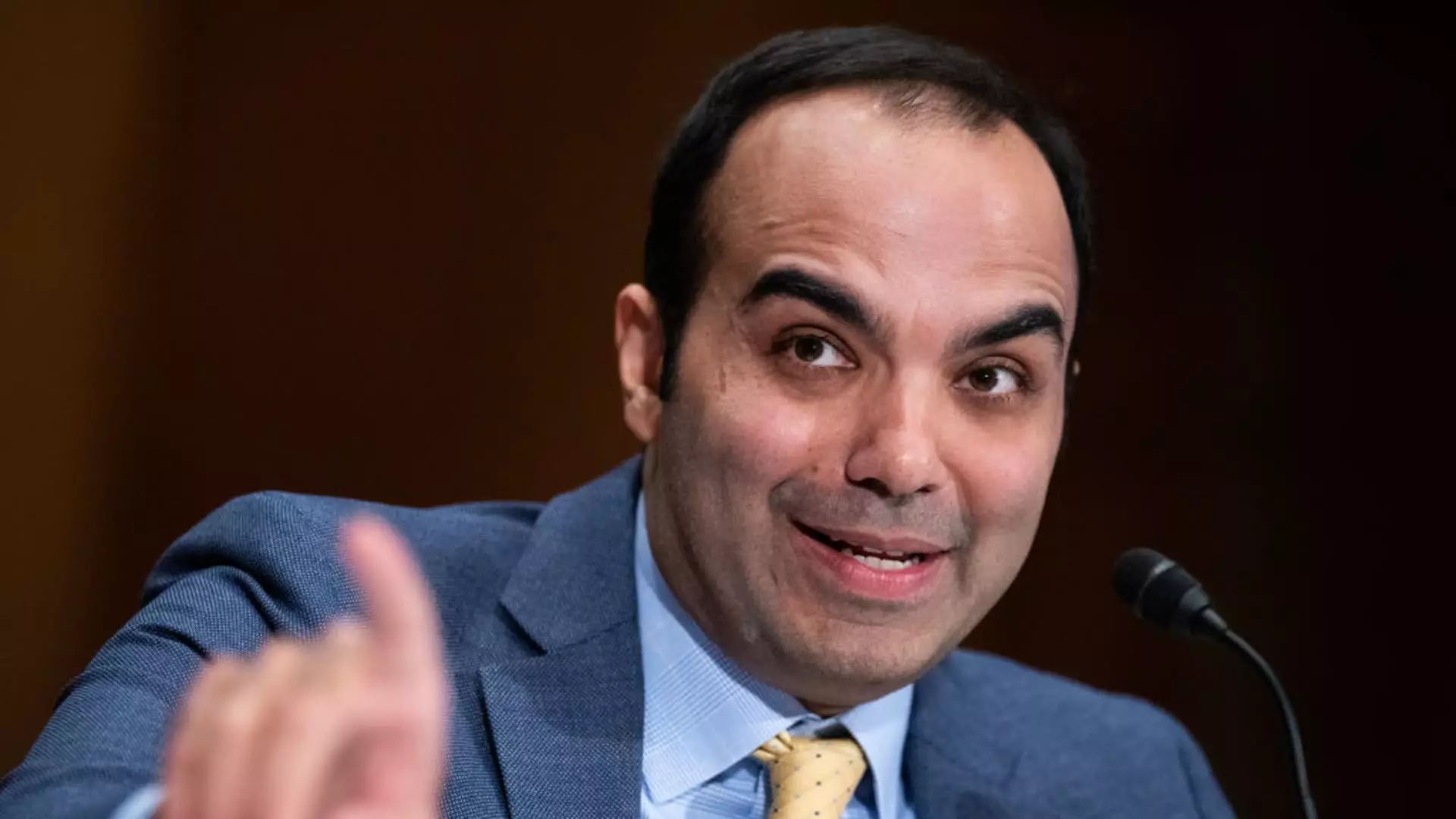In a significant legal move, the Consumer Financial Protection Bureau (CFPB) has initiated a lawsuit against the operators of the Zelle payments network, asserting that the platform’s parent company, along with three dominant banks—JPMorgan Chase, Bank of America, and Wells Fargo—have inadequately addressed fraud complaints and failed to reimburse affected customers effectively. This lawsuit emerges amid a growing scrutiny of digital payment systems in the wake of soaring financial crimes linked to peer-to-peer payment platforms.
Zelle, which enables instantaneous transfers between consumers and businesses, has become the most utilized peer-to-peer payment system in the United States since its launch in 2017. It is operated by Early Warning Services, a fintech firm owned by several major banks. With its appeal stemming from rapid transaction capabilities and convenience, Zelle attracted a massive volume of activity; in 2022 alone, transactions exceeding $806 billion were channeled through the network. However, with this surge in usage has come an alarming increase in fraud cases, leading to a staggering figure of over $870 million lost by customers of the aforementioned banks as a result of fraud.
The CFPB’s lawsuits reflect growing concerns about the vulnerabilities in Zelle’s operational framework. The agency claims that the banks involved have not only neglected to provide adequate fraud protections but have also treated customer complaints with a concerning level of indifference. These claims have been met with widespread criticism of the banking sector, with lawmakers questioning whether these financial institutions prioritize profits over consumer safety.
The lawsuit aligns with a broader pattern of regulatory actions taken by the CFPB, particularly during the latter part of the Biden administration, marked by attempts to impose stricter regulations on banking practices. This push for more accountability in the banking sector may stem from a political motivation to safeguard consumer interests while ensuring that large financial corporations adhere to ethical practices. The CFPB has engaged in various initiatives, including measures to limit penalties associated with late credit card payments and overdraft fees, many of which have been met with litigation threats from banks asserting their right to challenge federal oversight in favorable judicial venues.
In essence, the CFPB’s action against Zelle and its partner banks is part of a broader discourse about consumer rights and corporate accountability. The agency’s stance that banks deliberately neglected consumer protections has not only raised eyebrows but has positioned the lawsuit as a critical marker in the struggle between regulatory authority and corporate interests.
Dissecting the Claims of Fraud and Bank Non-compliance
In the lawsuit, the CFPB asserts that while Zelle processes a vast majority of transactions seamlessly, only a small portion—around $166 million—was formally reported as fraudulent complaints by customers of JPMorgan, Bank of America, and Wells Fargo. Alarmingly, these banks only reimbursed a mere 38% of disputed claims, raising questions about their commitment to safeguarding consumers. A Senate report has underscored this discrepancy, revealing a troubling trend: banks appear unable—or unwilling—to differentiate between actual fraud and authorized scams, leading to significant financial losses for customers.
The CFPB has indicated that Zelle’s operational framework is inherently flawed, particularly its minimal identity verification measures, which have left the door wide open for criminals to exploit the service. The challenge depicted here is compounded by the fact that fund diversion among financial institutions often takes place swiftly, making it increasingly difficult for consumers to recover lost funds. Such vulnerabilities make Zelle an attractive vehicle for cybercriminals.
Industry Responses and Future Implications
In response to the CFPB’s lawsuit, Early Warning Services has defended its practices, asserting that Zelle has robust fraud prevention protocols and reimbursement policies that adhere to legal standards. The company contends that the figures reported by the CFPB regarding losses due to fraud are misleading, arguing that many categorized cases involved errors or misunderstandings rather than direct fraudulent activity. Moreover, the company noted a reduction in reported fraud incidents, suggesting that despite increased transaction volumes, there is a positive trend in combating fraud.
As the CFPB’s legal actions unfold, the financial landscape could face significant changes, particularly regarding the operation of digital payment systems like Zelle. The outcome of these lawsuits could influence future regulations aimed at protecting consumers and managing the fine balance between innovation in financial technology and the risks associated with digital banking solutions.
The CFPB’s lawsuit against zelle and its associated banks encapsulates a pivotal moment in the ongoing dialogue about consumer protection within the financial industry. As digital payment platforms continue to proliferate, the imperative for rigorous safeguards against fraud becomes ever more pressing. The developments ahead will not only determine the fate of Zelle as a payment system but also set precedents for how similar technologies are managed, ultimately shaping the future of financial transactions in America.

